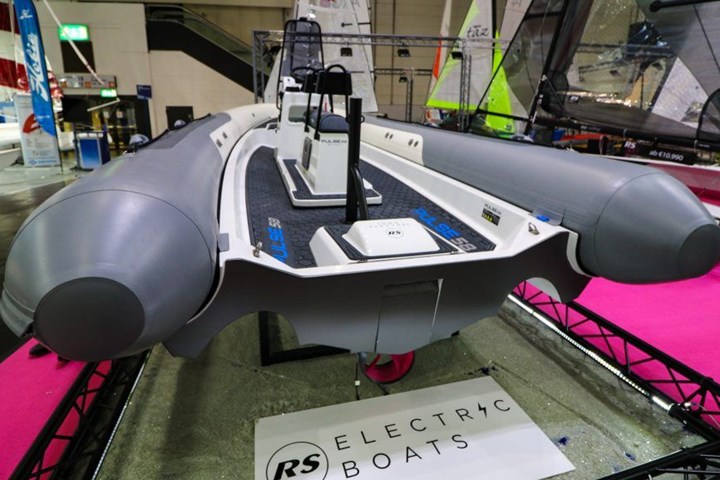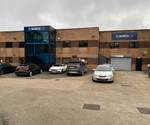RS Electric Boats selects Norco for composites fabrication
Comprised of bio-based infused epoxy resin, recycled PET core and basalt and flax fibers, the Pulse58 drives a different approach to boating.
Share

Source | Norco
Norco (Dorset, Poole, U.K.), manufacturer of large glass fiber-reinforced polymer (GFRP) structures, announced on June 23 that the company is supplying RS Electric Boats, sister-company to international maritime company, RS Sailing (Romsey, Southampton, U.K.), with composite components for its new Pulse58 electric sailboat.
Following two years of research and development, the Pulse58 is said to be the first 5.8-meter rigid inflatable boat (RIB) with a fully integral electric drive. Comprised of bio-based infused epoxy resin, recycled PET core material and naturally sourced basalt and flax fibers, which improve the structure’s strength and energy absorption, the sailboat incorporated these materials into the hull, deck, console, battery box and seat moldings. Aiming to bring to market the most sustainable RIB laminate in the marine sector, RS says the Pulse58 is lightweight and long-lasting in even the most extreme environments.
Further, Norco notes that, the short distance between RS’s facility and Norco’s site in Poole was a major factor in the company’s selection as the primary composites manufacturer for the Pulse58 — it enabled a lower carbon footprint and maintained RS’s overarching goal for sustainability and zero emissions.
“The Pulse58 defines a new genre of motorboats,” says John Smith, project engineer at RS Electric Boats. “Similar to electric cars, full electric drive requires a change of mindset and habits of use that match its capability. These small changes are key to protecting the future of our planet and the continued enjoyment of boating in a sustainable way.”
Norco notes that the marine industry does not yet have a defined future for alternative energy, and trails behind automotive manufacturers in terms of engine emissions. Evolving environmental attitudes and imminent changes to law around the world are driving demand for a different approach to boating that removes the negative impact of a fossil fuel-burning motor.
Related Content
-
TU Munich develops cuboidal conformable tanks using carbon fiber composites for increased hydrogen storage
Flat tank enabling standard platform for BEV and FCEV uses thermoplastic and thermoset composites, overwrapped skeleton design in pursuit of 25% more H2 storage.
-
PEEK vs. PEKK vs. PAEK and continuous compression molding
Suppliers of thermoplastics and carbon fiber chime in regarding PEEK vs. PEKK, and now PAEK, as well as in-situ consolidation — the supply chain for thermoplastic tape composites continues to evolve.
-
Natural fiber composites: Growing to fit sustainability needs
Led by global and industry-wide sustainability goals, commercial interest in flax and hemp fiber-reinforced composites grows into higher-performance, higher-volume applications.













.jpg;maxWidth=300;quality=90)


